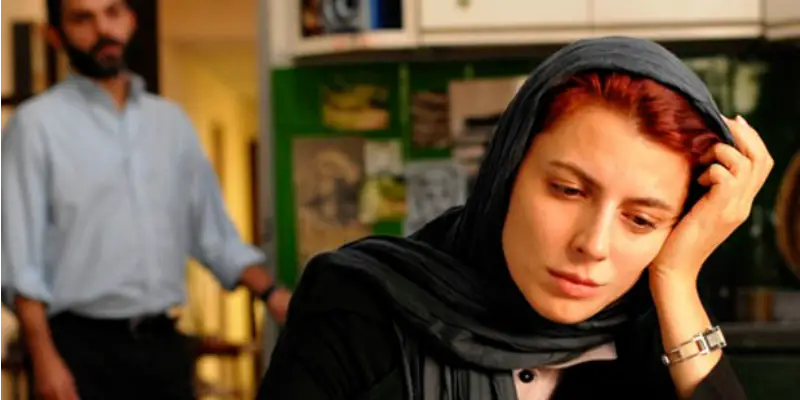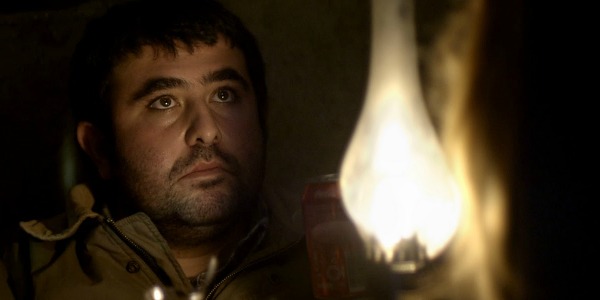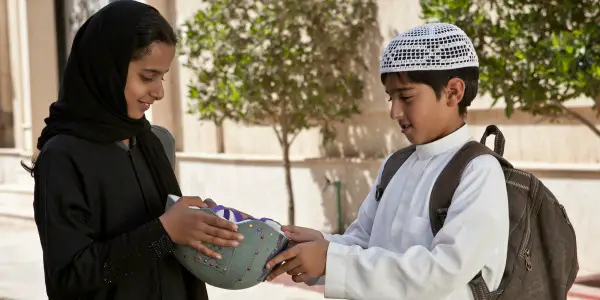The True Impact Of Women In Islamic Film

Freelance film worker and a current film Phd student in…
When we come across words like Arabic, Iranian, Palestinian, or any other Middle Eastern nationality, we immediately think of the difference in culture. Especially when it comes to women, we think of Islam’s (justified or not justified) reputation as an opponent of gender equality, an oppressor of women and the rule of men. This preconceived notion is slowly being challenged with a flood of films from the Middle East.
Middle Eastern films are gaining popularity around the world. Many come to mind: Asghar Farhadi’s A Separation, Abbas Kiarostami’s Through The Olive Trees and many Nuri Bilge Ceylan films, including Once Upon A Time In Anatolia. The latter stayed in my mind for years and resurfaced again when I saw the newest David Oelhoffen’s Far From Men. The following analysis of Turkish and Arabic atmospheres in the two films will be focused on the main feature – the absence of women in Islamic films. Although one of the defining characteristics of Islamic films, it does not carry a clear message or have a linear interpretation. It is very much open to debate and this is one of them.
The answer is in the cinema
The films lead into a discussion on gender politics and religious beliefs which shape the culture and are thus reflected in cinematic works. What am I talking about? In a great majority of films that take place in the surrounding countries that are in majority of Islamic religion, the stories revolve around male characters. Women – or specifically the absence of them – play an understated yet omnipotent role in these male-dominant films. At first glance it seems they are only present in film as an accessory to the male hero, but things are not so simple. Actually, they are surprisingly eye-opening.
She made me do it!
Like many of Ceylan’s films, Once Upon A Time In Anatolia also deals with memory and trauma connected to Turkey, seen as nostalgia for the homeland. The focus is not so much on the feeling of an individual’s displacement but on detachment from the society caused by a tragic action ‘initiated’ by a woman. Three cars on a journey through Anatolian desert are driving the prisoner Kenan (Firat Tanis) around so he can show them the place where he has buried the murdered victim. The journey takes all night, revealing the stories of all the men present, ending with a description of the situation that made Kenan commit the crime.

The effect women have on men and especially the effect their absence has on the men is cleverly told through the story, metaphorically. Every time the police and Kenan stop to find the body Kenan has buried, it turns out to be the wrong place and so they continue. The lesson at the end of the film is that it was never about finding the body but the journey itself. It is the description of the relationship between men and their women, the complexity of it – that is the story.
In the desert are just men and guns
Far From Men takes place in 1954, at the time of war for Algerian freedom from the French. Arab prisoner, Mohamed (Reda Kateb), is brought to Daru (Viggo Mortensen), a school teacher located in a valley surrounded by mountains. Having committed a murder, Mohamed has to be taken to another town for some “French justice”- a trial with an outcome of certain death. On their long journey they encounter activists and the opposing force that is killing them.
Although the film has a strong political spirit, the real story is about the bond the two men develop on the journey and the effect it has on both of them. Again it is about the journey and one could say that both directors are trying to express the complexity of the relationships through their films. By not including women in film, they are actually accenting their power over men.
Biased portrayal of women in Islamic films
On one hand, the women in the two films are not portrayed as active subjects, but as objects of male desire. Occurring only once in each film, they take the role of a girl serving tea in Once Upon A Time In Anatolia and three prostitutes in a Spanish village on the way in the perhaps ironically titled Far From Men.
This male-dominant attitude is of course problematic, for it reproduces the still powerful patriarch culture in Islamic society. These films subordinate women to men and deny them agency, Suner writes in her work on women in Eastern films (2010). Without going into too much polemic on women’s social status, the absence of women should not necessarily be considered as a completely negative condition in relation to gender politics.

There is a positive effect: this masculine picture sometimes exhibits a critical self-awareness about their involvement with patriarchal culture. In this sense, the woman turns from an accessory into a necessity. She represents a ‘break’ from a harsh reality, an escape into dreaminess and softness. In the environment of dust and harsh weather conditions (the desert’s extreme cold at night and unbearable heat during the day), the feminine scent is the salvation for men. It is a recuperating force that gives them energy to face the difficulty of future challenges.
A woman’s touch
The relationships between the main characters and women they meet can be described as delicate. At the village in Anatolia where they rest, the men are awestruck by the beauty of the mayor’s (Ercan Kesal) daughter (Cansu Demirci), who serves them tea inside a blackout house illuminated only by a flickering oil lamp. The young woman’s biblical presence pierces the souls of the broken men in a sequence when the surreal and the real come together.
In Far From Men, in definitely non-biblical roles, the Spanish women prostitutes (Sonia Amori, Ángela Molina) are the turning point in Daru and Mohamed’s journey, if not even their entire lives. Mohamed has his first (and what seems up to that point in film also to be his last) physical experience with a woman, an obvious action of smoothing the edges of hard masculinity. Daru is the opposite. He is a man’s man who is uncomfortable with expressing the totality of his emotions. It is in this scene with the prostitute where he lets go of his feelings.
Far From Men and Once Upon A Time In Anatolia have a similar culmination of feelings, which later affect their ending. By being ‘set free’ of emotions, the men are able to access their human and compassionate side. Daru and Mohamed become friends and Mohamed takes his advice not to go to trial, Kenan receives compassion from the chief of police and forms a friendship. It seems as though women contribute to communication amongst men – making it more fluid, honest and effective. It is ironic how this can be interpreted in films and be the opposite of the society they are set in.
Look at us now: women in Algeria and Turkey
Algerian women are subject to the family code, enforcing male dominance. It is discriminating against women in matters of marriage, divorce, inheritance and child custody. Women are entitled to less inheritance, must present more plausible reasons for a divorce, etc. Although the situation is being challenged by many women’s rights groups, some amendments in law are still being debated in politics.
In this sense Turkey has gone a step further. Women’s struggle for equality has overgrown the minority some time ago and has also gained a reputation over the world. Crimes like rapes, domestic violence, child marriages, human trafficking are being exposed. While the fight is still much in progress, the results are slowly becoming visible; inclusion in family inheritance and arranged marriages began taking a turn when Turkey began its application to the European Union. With work on women’s rights required by the European Parliament, the country moved forward and so gained many more opportunities for funding organisations and gaining support from other women’s rights groups.

While gender equality is far from being recognised and attributed to women, the self-reflection is starting to become noticeable. We are witnessing the ascent of women directors in the industry. The first film ever to be shot in Saudi Arabia, done with an excellent balance of humour and drama, Haifaa Al-Mansour’s Wadjda proves the talent is being unleashed. Not long ago, women’s ideas in film were recalled as made-up girl’s nonsense, today’s women have interesting and real stories to tell. The limitations they faced before are losing their grip and women now talk from a woman’s point of view.
I see what you mean, dear!
That women understand women is self-explanatory. But what about men understanding women’s point of view? Expressed in these two films, the men’s point of view is biased. There are emerging women directors, however, with the importance of association and comparison of boys and men with ‘men’ culture and thinking, it is perhaps the male directors that could change the current of thought. The two films discussed in this article had a goal to alert us to the effect of women, more concretely on how the lack of them influenced men and the (negative) consequences that followed.
A deeper focus on this issue can develop the ideas of gender equality, or might it be also called the power of women, further and bring them to the general public’s attention. This way small boys and girls will be faced with the new wave of interpretation and representation of gender politics and open their minds to a world that could not only be seen in films, but will become reality. With men and women being seen as equals, living as equals, maybe this is a good way to integrate new visions into young people’s minds.
What are your impressions of women in Islamic film? Do you think their influence is increasing?
Bibliography: Suner, A. (2010) New Turkish Cinema: Belonging, Identity and Memory. I.B.Tauris & Co Ltd.: UK.
Does content like this matter to you?
Become a Member and support film journalism. Unlock access to all of Film Inquiry`s great articles. Join a community of like-minded readers who are passionate about cinema - get access to our private members Network, give back to independent filmmakers, and more.
Freelance film worker and a current film Phd student in UK.












